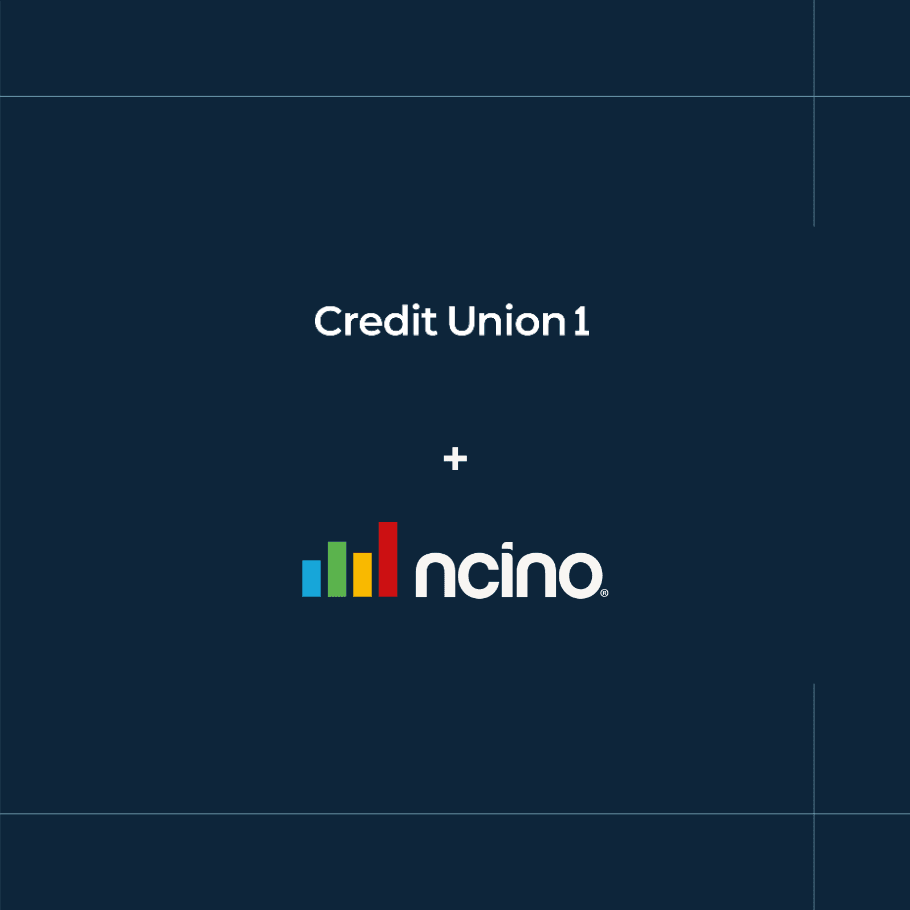CU1 to implement nCino across Commercial, Consumer & Indirect Lending to empower teams to serve members more quickly and efficiently.

CU1 to implement nCino across Commercial, Consumer & Indirect Lending to empower teams to serve members more quickly and efficiently.

Founded in 1949 in Wisconsin, Marine Credit Union (MCU) has grown to serve over 76,000 members across Wisconsin, Minnesota, Iowa, and Illinois. With a steadfast commitment to the community, MCU strives to make financial fulfillment accessible to everyone. By guiding individuals from financial challenges to achieving ownership and giving back, MCU empowers its members to lead better lives.

Kiwibank is the largest New Zealand-owned bank, currently serving over one million customers. As a leader in the banking industry, Kiwibank is dedicated to being customers’ first choice for banking needs, evidenced in their 5.2% growth in main bank customers and 9.3% increase in total lending during fiscal year 2024. With over 8,000 new homes financed and 5,000 customers securing better home loan deals in FY 24, the bank is deeply committed to enhancing customer experience and outcomes.

Rhode Island-based community bank sees digital account opening process considerably reduced and cuts in-branch account opening time with nCino Consumer Deposit Account Opening

The consumer lending market has seen monumental shifts over the last decade. From the rise of fintechs to new regulatory measures, these changes have reshaped how we borrow and lend. Understanding and responding to trends in the market is crucial for financial institutions of all sizes.

In the dynamic world of financial services, Artificial Intelligence (AI) stands at the forefront of a revolution, unlocking unprecedented value for financial institutions. This technology, characterized by its ability to learn and adapt, is not merely an addition to the toolkit of the financial sector; it's a game-changer. By harnessing AI, financial institutions (FIs) are enhancing decision-making processes, optimizing operational efficiencies, and delivering highly personalized customer experiences.

Over the last decade, vendors have solved the problem of consumer account opening. Many solutions allow your company to open a consumer account in minutes. The Identity and Verification (ID&V) tools for individuals that power these consumer account opening tools are mature enough that they're now being commoditized. On the other hand, opening accounts for businesses and other complex entities like trusts, not-for-profits, MSBs, or foreign individuals, still requires manual processes and lengthy account opening times.

nCino is committed to making its software accessible to all users, including those with disabilities. This is essential because it ensures that everyone has equal access to financial services. nCino has achieved WCAG 2.1 AA Certification for accessibility with its Customer Portaland is committed to continuing to ensure nCino is accessible to users of all abilities.

Forrester’s Vision: Measure Digital Success and Drive Profitable Growth report introduces Forrester’s digital measurement framework and shows financial institutions how to properly define the right metrics to track and improve the success of their digital efforts.

Community banks are facing challenges from larger banks and changing consumer preferences. nCino can help them address these challenges by providing a digital platform that streamlines operations and improves customer service.By providing essential banking services in small towns and rural communities, community banks play a crucial role in the operation of the U.S. financial system and overall economy. While every community bank is different, they all have at least one thing in common: the need to streamline and standardize current processes, increase efficiency and find innovative ways to better serve their customers and communities.

Community bank chooses nCino’s cloud-based, single platform to streamline lending, account opening, and client engagement.Armstrong Bank has chosen to deploy nCino's Bank Operating System to streamline its lending, account opening and client engagement processes. By adopting a single digital platform, the Bank aims to enhance customer service, improve efficiency and provide a seamless and personalized experience to its clients.

Michael Rennie, Chief Digital Officer at Cynergy Bank, knew it was time for the bank to undergo a digital transformation before the COVID-19 pandemic became an influence. He identified the need to replace outdated technology to accommodate changing customer expectations, increase efficiencies and accelerate growth within the competitive financial services industry. He also wanted a product that would allow the bank to pivot quickly when necessary and offer new products and services to its borrowers.